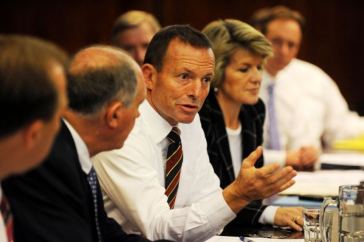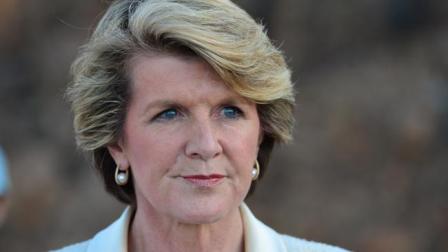Last Tuesday night was a particularly delectable affair on the ABC. Kerry O’Brien had the astute honour of interviewing former Prime Minister, Paul Keating, who is one of the most formidable political, economic and social minds of Australia’s history. Now, I may be prone to hyperbole every now and then, but Keating has long been my personal idol, a veritable intellectual behemoth and probably one of the best things to happen to this country.
During the interview with Kerry O’Brien, you got a real sense of where Keating came from, not only a politician but also as a person. He was clearly a man of conviction, vision and ideas. I was particularly impressed when he said “ Having enemies worries some people, for me it is a badge of honour”. It seems to cut deep into the current polity, which is more concerned with polling than with what is actually best for the country.
Keating was also a man of class. He had the ear of the working people and the respect of the knowledge class. Yet most importantly, he didn’t try to portray the illusion that he was just the “everyman”, who lacked an interest in cultural and intellectual pursuits like Howard did. No, here was a man with an appreciation for neoclassicism, a fondness for antiquities and clocks as well as a thirst for knowledge. His Prime Ministerial career was far too short, but his legacy in parliament was considerable.
If there was anything to bring me back into reality, it was a recent interview with Leigh Sales,Tony Abbott and the Prime Minister’s pause utterances last Wednesday Night on the 7:30 Report. The interview kicked off with the apparent mandate for the Coalition’s electoral win – the repeal of the Carbon Tax. Sales queried what Abbot would do in the event that the bill to repeal the tax is unsuccessful.
Abbott: Well, um, I won’t make the assumption that it won’t get through the parliament. The Labor Party are deeply divided on this Leigh. It said that Bill Shorten himself would prefer to let it through. Certainly, if you’re fair dinkum about supporting worker’s job security, about saving families $550 a year, getting power bills down by $200 per year, gas bills down by $70 a year, you will allow the Carbon Tax Repeal legislation to go through.
Abbott continued to press the apparent mandate the LNP government has in terms of repealing the carbox tax, despite the fact that the true source of the Coalition’s win was that they weren’t the ALP and lacked their party politics that inflicted itself on Australia since 2007. The Prime Minister did provide assurances to the claim that the ACCC will act as a “price police” to monitor the ease of cost of living pressures. However, considering that the Carbon Price had a negligible affect on the cost of living, I find these claims remarkably hard to substantiate.
Perhaps if you say things loudly enough, the masses will believe it. It seemed to work while the LNP were in opposition.
Sales then addresses the topic of of the LNP’s direct action policy and whether it will be able to secure the 5% reduction in emissions. The Prime Minister was “very confident” that they will be able to achieve the reduction, even though Greg Hunt MP saying on breakfast radio that the 5% reduction will be unconditional. Abbott made no assurances that if the 5% emmissions cut wasn’t reached, that he would increase spending. Rather, the direct action policy is capped and fully costed and it will work. No. Matter. What.
The interview continues with the standard model answers – namely contingency plans are completely unnecessary because the plan will work. Furthermore, anytime the question was raised that the public would be interested in accessing information, which informs Government policy, Abbott responds with derision or pulls out his often quoted slogans of “Stop the Boats”.
I’ve watched the interview several times and quite frankly there isn’t enough wine in my house to dissect Abbott’s responses without falling into an alcoholic stupor. For the sake of my mental sanity, I will leave my analysis there. I do hope that as Abbott’s term in government continues, he will stop blaming the legacy of the ALP and actually start taking accountability for his actions.
Until then, this girl can dream. Oh wait, one of those dreams nearly came true – Kevin Rudd has retired from Parliament, which meant that any attention directed at Abbott’s woeful interview performance went straight back to the Kevin Rudd for More Kevin Rudd Party. Well played, KRudd.
Next week, I look at the Coalition’s Government’s approach to the so called “asylum seeker problem” over several bottles of white wine while on a boat. I suspect the coalition’s approach to human rights will make me feel even more nauseous than the combination of wine and motion sickness. Wish me well.
Related articles
- Tony Abbott flicks the switch from vaudeville to Mogadon (theguardian.com)
- Keating’s gift of gab a ratings winner (skynews.com.au)
- Seven things you may not know about Paul Keating (abc.net.au)
- Friday Flashback: Classic Paul Keating scores a TKO against John Howard (theaimn.com)



